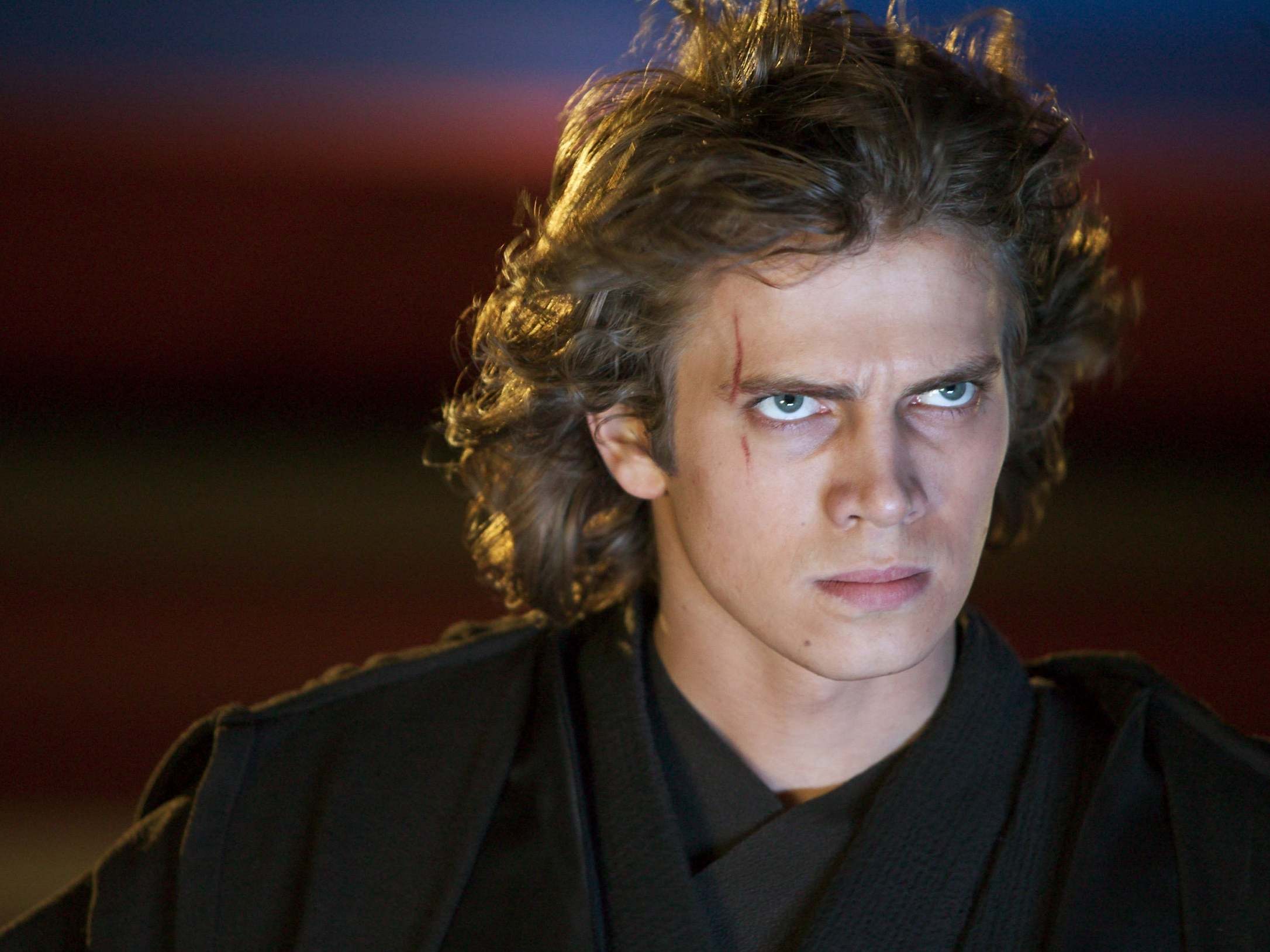Phantom menaces: Why the Star Wars prequels finally deserve some respect
As ‘Revenge of the Sith’ turns 15, Clarisse Loughrey takes a lightsaber to the hatred it fuelled on the dark side of the internet


Your support helps us to tell the story
From reproductive rights to climate change to Big Tech, The Independent is on the ground when the story is developing. Whether it's investigating the financials of Elon Musk's pro-Trump PAC or producing our latest documentary, 'The A Word', which shines a light on the American women fighting for reproductive rights, we know how important it is to parse out the facts from the messaging.
At such a critical moment in US history, we need reporters on the ground. Your donation allows us to keep sending journalists to speak to both sides of the story.
The Independent is trusted by Americans across the entire political spectrum. And unlike many other quality news outlets, we choose not to lock Americans out of our reporting and analysis with paywalls. We believe quality journalism should be available to everyone, paid for by those who can afford it.
Your support makes all the difference.The internet taught me to hate the Star Wars prequels. This barren land of YouTube rants and self-published blogs had made it an ironclad decree: the prequels were an evil that could only be vanquished by picking apart every single frame and denouncing the garbled nonsense within. Jar Jar Binks might as well have been the antichrist. True, the Star Wars fandom had spent half of its existence in some form of apoplectic rage. People near-rioted when George Lucas tinkered with the sacred texts, the original trilogy, by adding a few rotund CGI beasties in the background and making Greedo shoot first during his showdown with Han Solo. But the prequels became the absolute zenith of their disdain, expressed through the slamming of computer keys and eventually in an exhaustive two-hour documentary about fanaticism and filmmaking, 2010’s The People vs George Lucas.
A narrative had been forged, one in stark defiance of the trilogy’s $2.5bn box office returns and a critical reaction that was more mixed than outright negative. I went from being an eight-year-old child in wide-eyed wonder, clutching her Queen Amidala doll and Sebulba drink topper, to the 11-year-old who tasted disappointment with Attack of the Clones but shrugged and moved on, to the 14-year-old who felt like the only conceivable reaction to Revenge of the Sith was contempt.
This consensus was created largely by a generation whose childhoods had been graced with the original films. Lucas’s tinkering posed a potential threat to their own nostalgia. But those whose first experience of Star Wars on the big screen was 1999’s The Phantom Menace have since grown up – and as the final entry, Revenge of the Sith, celebrates its 15th anniversary, there’s been time to reassess their cultural status. Lady Damfino, whose Instagram is a treasure trove of Star Wars-inspired fashion, belongs to that generation. “I had seen the original trilogy,” she says, “but the prequels definitely ignited my interest to get into them on a deeper level.”
Damfino is part of an ever-growing coterie of younger fans who stand proud by their love of the Star Wars prequels. “The tide has changed,” says Charlie Ashby, who co-hosts The Imperial Senate Podcast. “It doesn’t mean we can’t mock or make fun of some elements, but it’s nice to see the films become more appreciated over time – or, at least, those kids [who grew up with them] get to voice their opinion for once.” And with Disney’s continuation of the franchise bringing in new converts, the old fixations on entitlement and ownership have started to wane. Yes, unfettered rage is still a distinct part of the Star Wars fandom (try publicly expressing an opinion on The Last Jedi), but a now-popular slogan declares that “Star Wars is for Everyone”, whatever your background, age or stance on the prequels might be.
In truth, the cards were stacked against these films. Contemporary reviews may have been largely neutered, but those critics who did take offence launched a full-scale attack on the prequels’ very existence. Anthony Lane, writing in the New Yorker, declared that Revenge of the Sith was the best of the trilogy “in the same way that dying of natural causes is preferable to crucifixion”. The most common accusation was that they were merely bait for selling toys and other merchandise. But critics have since largely been drained of their anger. The reaction to cynical franchising now is just muted weariness.
Lucas’s contributions just had the misfortune of sitting at the crest of a 21st-century wave of Hollywood sequels, prequels and midquels. His trilogy’s unapologetically kitschy trappings – all aesthetic fussiness and soap opera dialogue – didn’t quite sit right with its contemporaries, the solemn Lord of the Rings series and cerebral-minded dystopia The Matrix. Lucas was attempting to paint busier, more elaborate digital landscapes than anyone else at a time when the technology was still relatively underdeveloped. Revenge of the Sith is, noticeably, the only entry where his VFX creations have any heft to them.
It is, perhaps, easy to let all the visual trickery undermine the true scope and ambition of Lucas’s prequels. The director, now in complete creative control, pushed the political allegories that have always underpinned Star Wars to the forefront. Padmé’s comment that “this is how liberty dies – with thunderous applause” was read as a critique of George W Bush and his Patriot Act, but it plays just as comfortably now as a commentary on Donald Trump. “People had a problem with [the prequels] because they weren’t broad and tongue in cheek,” Rogue One star Riz Ahmed said in 2016. “I enjoy that. I enjoy the fact that it was about grown-up politics and the dissolution of the League of Nations and world war and the rise of fascism.”

Lucas, possibly blessed with the perspective that comes with age, wanted to look past the simple duality of good versus evil. Anakin’s fall to the dark side – the arching narrative of the three films – isn’t just a straightforward seduction (though Ian McDiarmid imbues Palpatine with a slithering elegance). It’s also due to a moral bankruptcy on the part of his supposed protectors, the Jedi Council. Bound by strict rules and self-centred traditions, it ignored the galaxy’s suffering, whisking Anakin away from his mother and failing to rescue her from slavery on Tatooine.
Hayden Christensen, who played Anakin, may have been saddled with some real clunkers – “from my point of view, the Jedi are evil” is delivered like he’s on the school debate team – but he could at least channel the character’s wild confusion with flair. Anakin is a man torn apart by the past he’s left behind, the present (his wife, Padmé) that he’s so desperate to preserve, and the future duties the Jedi want to impose on him. Charlie Ashby resonated with that push and pull. “I was having health issues at the time [Revenge of the Sith] came out,” he says. “Oddly, it was seeing Anakin go through those extremities and come out of it that helped me through a dark period.”

Watch Apple TV+ free for 7 days
New subscribers only. £8.99/mo. after free trial. Plan auto-renews until cancelled

Watch Apple TV+ free for 7 days
New subscribers only. £8.99/mo. after free trial. Plan auto-renews until cancelled
The callbacks to the early Star Wars are subtle, too. As Luke Bligh, co-host of the Star Wars Sessions podcast, points out: “There’s so much meaning in the prequels that poetically mirrors the original trilogy – something that I only appreciated as I got older.” Anakin and his son Luke, both young men from the same dusty planet who set off to unknown greatness, find their paths intertwining and diverging at crucial moments. Lucas sees the film as cinematic verse, where “every stanza kind of rhymes with the last one”. Indeed, Anakin’s pact with Palpatine is Faustian; his downfall echoes John Milton’s Paradise Lost; while Lady Damfino describes his romance with Padmé as a “Romeo and Juliet love story”. And it all ends with a descent into the fiery hell pit that is Mustafar, as Anakin battles his old mentor Obi-Wan Kenobi (Ewan McGregor) and ends up limbless and deep-fried. Revenge of the Sith was the first Star Wars film to earn a PG-13 rating in the US as a result.
Emotions stay at their broadest and most epic, which may explain some of the tin-eared dialogue. Whatever the case, at least the “Hello there!”s and “This is where the fun begins!” have now taken on a second life in internet culture. “The prequel memes are simply beautiful, plaster them on the ceiling of the Sistine Chapel,” Matt Hudson, Star Wars Sessions’ other co-host, jokes. “It’s nearly impossible to watch those movies without a plethora of memes running through your head during so many scenes. They add to the aura of the prequels.” Lucas had an early fascination with San Francisco’s experimental film movement and, inevitably, seemed more invested in using the frame as a canvas for his ideas, as opposed to worrying himself with what characters might do or say.
The set design, however, is largely free of nostalgia: the rough, lived-in quality of the original films is traded in for sleek lines and romantic opulence. It’s what Lucas imagined a naive, pre-war democracy might look like, much like the Weimar Republic as it tipped towards disaster. Padmé’s show-stopping wardrobe is all metallic headdresses, velvet robes, fabric twists and hair curls. For Madison Fairchild, who runs a Star Wars-centric Twitch channel, the costumes are “the first thing I think about when remembering the prequels. They are so iconic.” And while Padmé may have suffered a cruel fate (distraught over Anakin, she simply “loses her will to live”), it’s a rarity to see a sci-fi love interest with such a full life outside of her relationship – as a politician, a fighter, and a queen.
Padmé’s character has grown dramatically outside of the films themselves, thanks to the many tie-in books, comics and The Clone Wars series, which was given a seventh and final season on Disney+. In the show, her relationship with Anakin is explored in-depth, while she’s also shown laying down the foundations of the future Rebel Alliance (a storyline cut from Revenge of the Sith). The introduction of Ahsoka Tano, Anakin’s protégé, and her eventual betrayal by the Jedi Council, strengthens his distrust in it and hints at his eventual turn to the dark side. “I don’t think anyone can say that The Clone Wars didn’t change their opinions on the movies,” says Ashby. To be a Star Wars fan often means treating each film as one tendril of a much larger, more intricate web.
Does The Clone Wars automatically make the prequels better? No, but it grants perspective, just as the release of the sequel trilogy made some, in Damfino’s eyes, “nostalgic for the prequel era”. The Star Wars fandom has always worked in cycles. Arguments about Ewoks were replaced with arguments about Jar Jar Binks, then by arguments about Porgs. It’s easier now to look back and acknowledge that, despite his prequel’s flaws, Lucas had envisioned something on a far grander emotional and thematic scale than anything that’s been attempted before or since.
And I’ve no longer got the internet breathing down my neck, insisting these movies are childhood-wreckers. Our obsessive impulse to always rank, classify and canonise every cultural product sometimes erases the role that personal memory and experience have in shaping our relationship with film. The prequels made me a Star Wars fan. The same is true for many others. If that’s enough to redeem these films, who’s to say otherwise?
Join our commenting forum
Join thought-provoking conversations, follow other Independent readers and see their replies
Comments